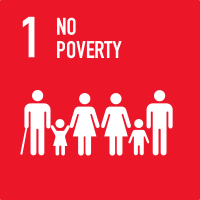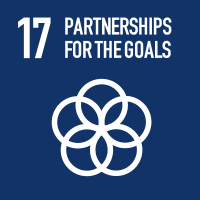Studying at the University of Verona
Here you can find information on the organisational aspects of the Programme, lecture timetables, learning activities and useful contact details for your time at the University, from enrolment to graduation.
Study Plan
This information is intended exclusively for students already enrolled in this course.If you are a new student interested in enrolling, you can find information about the course of study on the course page:
Laurea magistrale in International Economics and Business - Enrollment from 2025/2026The Study Plan includes all modules, teaching and learning activities that each student will need to undertake during their time at the University.
Please select your Study Plan based on your enrollment year.
1° Year
| Modules | Credits | TAF | SSD |
|---|
2° Year It will be activated in the A.Y. 2025/2026
| Modules | Credits | TAF | SSD |
|---|
Two modules among the followingOne module between the following| Modules | Credits | TAF | SSD |
|---|
| Modules | Credits | TAF | SSD |
|---|
Two modules among the followingOne module between the following| Modules | Credits | TAF | SSD |
|---|
Legend | Type of training activity (TTA)
TAF (Type of Educational Activity) All courses and activities are classified into different types of educational activities, indicated by a letter.
International Law (2024/2025)
Teaching code
4S003753
Academic staff
Coordinator
Credits
9
Language
English
Scientific Disciplinary Sector (SSD)
IUS/13 - INTERNATIONAL LAW
Period
Secondo semestre LM dal Feb 17, 2025 al May 23, 2025.
Courses Single
Authorized
Learning objectives
The course covers the main legal tools of international and EU law in order understand and assess the legal implications of the behaviours of the companies operating on the European and international markets. After analysing the structure of the international society and of the European Union in particular, as well as their legal sources, the course will aim at deepening specific relevant policies, such as competion law, the right of establishment, and providing the main private international law tools which are necessary to deal with international contracts.
At the end of the course the student should be able to know and understand the main functioning mechanisms related to antitrust law, the right o establishment and international contracts; analyse these mechanisms by applying them to practical cases that will be dealt with during the course; develop written communication skills showing a good command of the legal jargon.
Prerequisites and basic notions
To understand the topics covered in the course, students must have general legal notions on the structure of the State and the sources of law. This precondition is valid for both attending and non-attending students, and is proven by passing the relevant first year exams.
Program
Course Objectives:
– Understand the structure, sources, and subjects of International Law.
– Analyze the role and function of international organizations and courts.
– Apply International Law principles to contemporary global issues.
– Critically assess the impact of International Law on State behaviour and international relations.
These objectives will be achieved through comprehensive lectures and direct involvement of students in the analysis of study material and case-law. This will help strengthen their critical thinking and their ability to explain and argue the topics covered with appropriate terminology. Based on the knowledge acquired, students will be able to apply concepts and logic of international law to the analysis of specific cases.
Course Structure:
A – The Structure of International Law (by M. Fulgenzi):
- The Nature and Fundamental Concepts of International Law
- The Subjects of International Law
- The Sources of International Law
- Jurisdiction and Immunities
- International Diplomacy
- The Individual in International Law, The protection of Human Rights
- The United Nations
- The Law of State Responsibility
- International Courts and Tribunals
- Sanctions, Countermeasures, and Collective Security
B - The Substance of International Law (by M. Fulgenzi):
- International Peace and Security, The Use of Force
- Law of Armed Conflict
- International Criminal Law
- The Law of the Sea, the Air, and Outer Space
- Environment, Sustainable Development, Public Health.
C - Global Economic Governance (by E. Branca):
- International Trade Law
- Global Financial Architecture
- International Investment Law.
Bibliography
Didactic methods
The course is structured in a series of lectures and seminars, with the possible assistance of telematic tools. Supplementary reading material related to the topics covered in class, such as case-law, texts of resolutions, declarations, and treaties, is indicated during the lessons.
Course reference book & required readings:
- J. Klabbers, International Law, 4th edition, Cambridge University Press, 2023.
Tutoring activities are planned and agreed upon to support students.
Learning assessment procedures
Individual interview (lasting about 20 minutes)
Evaluation criteria
- Attending Students: The exam (interview) is designed to reflect the material covered in lectures, allowing students to demonstrate the understanding and analytical skills developed through active participation and engagement with the course content.
- Non-Attending Students: The exam (interview) emphasizes comprehensive knowledge and independent study by students, with particular attention to the application of general principles, concepts, and detailed analysis based on the entire syllabus and recommended readings.
Criteria for the composition of the final grade
Final Examination: 100% of the final mark (0-30 scale)
Exam language
Italiano, English




